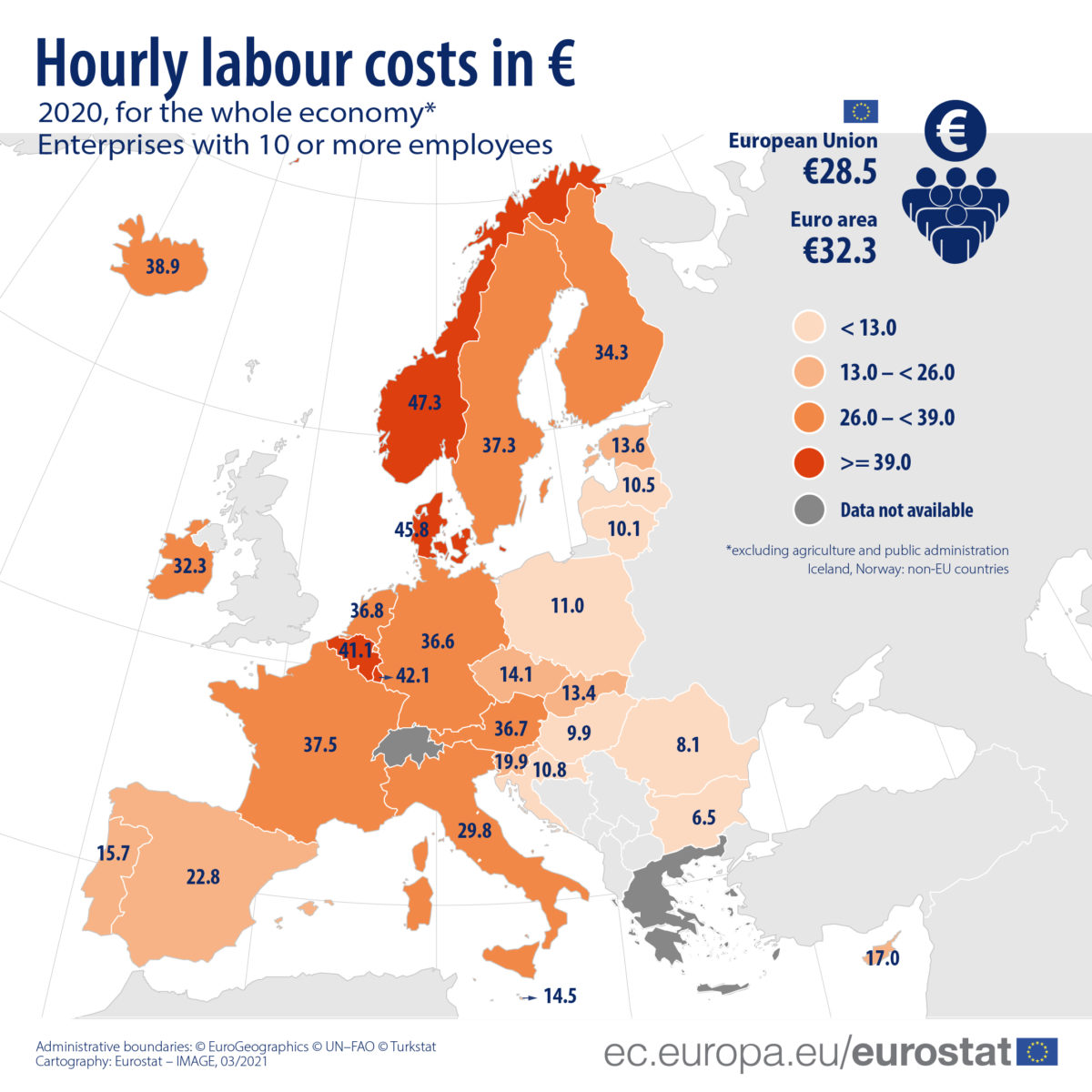Hourly labour costs in Malta fell the hardest in the EU from 2019 to 2020, by 4.7 per cent. It was one of only four Member States which recorded a decline in this period.
The data released on Wednesday by the European Union statistics arm, Eurostat, shows that the average hourly labour cost in Malta’s whole economy (excluding agriculture and public administration) stood at €14.50 in 2020, down from €15.20 in 2019. The last time this figure was so low was in 2016 when it was €14.20.
Whilst this was a fairly middle-of-the-road figure for the EU, it represents a contraction significantly greater than those recorded in the three other countries where labour costs also declined. In Cyprus and Ireland, hourly labour costs during the period dropped by 2.7 per cent. In Croatia it fell by only one per cent.

Across the EU, the average hourly labour costs were highest in Denmark, at €45.80, whereas the lowest was recorded in Bulgaria, where the average hourly pay was €6.50.
However, these statistics need to be viewed through a lens of the impact of COVID. In many countries (including Malta), Government support schemes were introduced to alleviate the impact of the pandemic on enterprises and employees.
Partially as a result of these measures, the number of hours worked by employees has decreased more than wages in many EU countries.
In Malta, by the fourth quarter of 2020, the National Statistics Office has estimated that the average basic monthly salary of Malta’s employees was €1,555, down from €1,619 in the same period the year before.
In parallel to this, the average number of hours worked weekly by employees in Malta in Q4 2020 fell to 36.6, down from 39.9 per cent in the same period the year before.
This indicates that pay in Malta did not decline as harshly as the number of hours worked did, which might have been expected to suggest that Malta’s hourly labour costs might have increased.
That this is not the case might be explained by one of the key differences between labour costs and payment statistics.
The Eurostat report on labour costs differs from other salary statistics as it considers both wages/salaries and non-wage costs, such as employers’ social contributions.
According to the data, the proportion of non-wage labour costs in Malta was the lowest in the EU in 2020, at -0.3 per cent, down from 5.9 per cent in 2019, likely explaining how labour costs decreased more than pay did.
Employers take umbrage at video promoting public sector’s flexible work arrangements
The video outlines a range of flexibility options available to public sector employees
Malta’s inflation eases to 2.5% in January as food prices remain main driver
While overall inflation continued to moderate at the start of the year, price pressures remain uneven across categories
Final call for food and beverage manufacturers to exhibit at SIAL Paris
SIAL Paris is one of the world’s leading international food and beverage exhibitions






